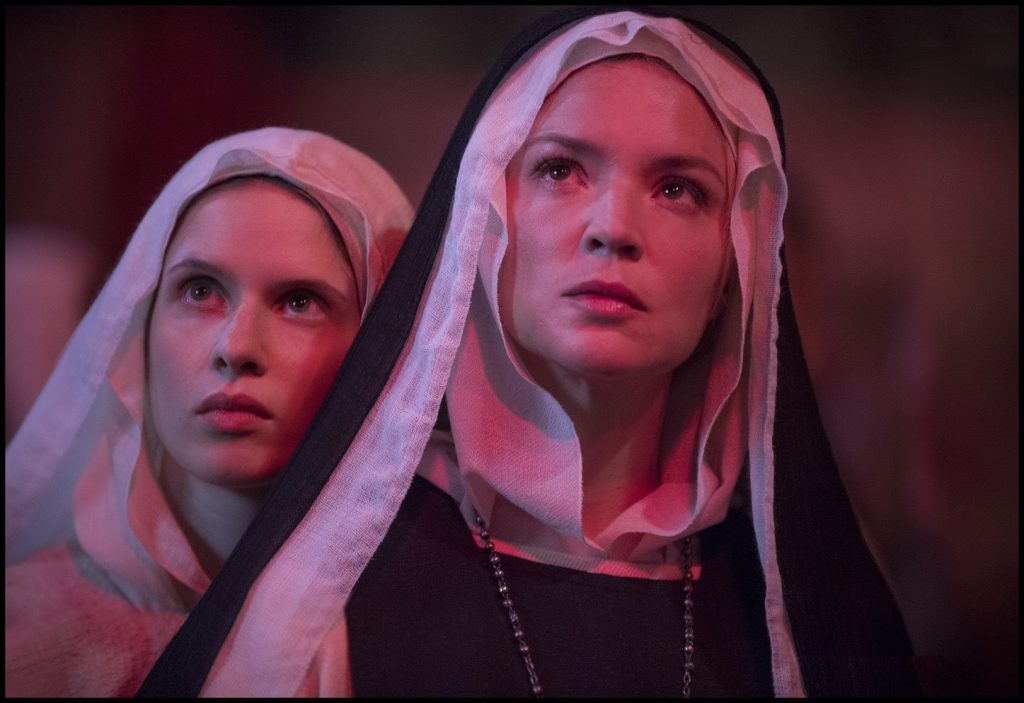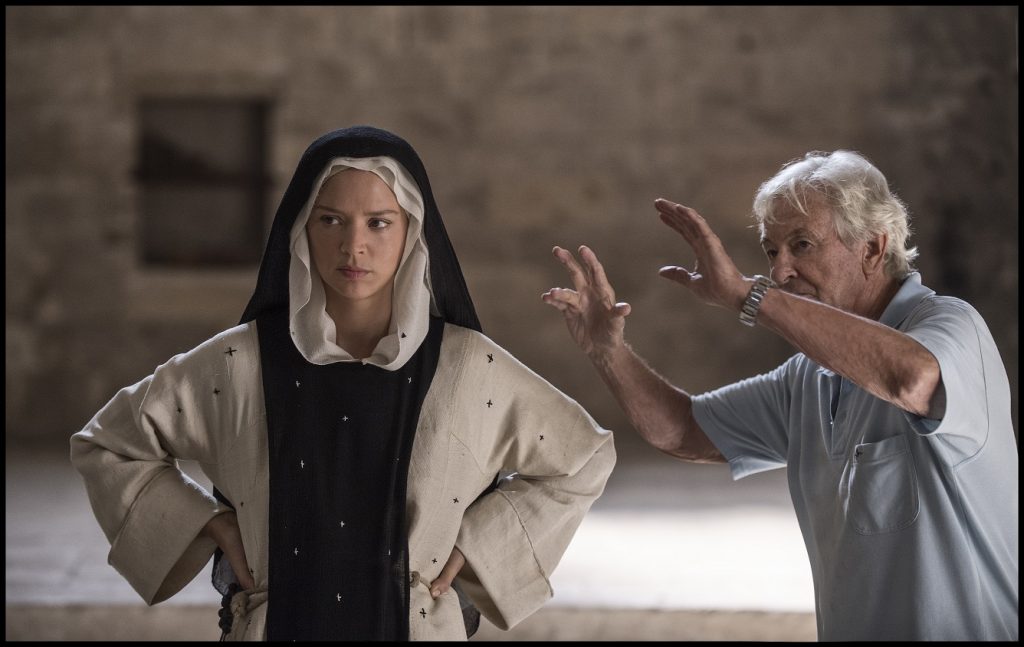
There are few things in this world that are as universal and influential as religion. Innumerable faiths have different visions of what a deity might look like, but many espouse fierce devotion and lifelong penitence for actions in front of an all-powerful being capable of eternal judgment. Countless wars have been started in the name of religion, and many who have been unfortunate enough to live as minorities in a state dominated by one domineering strain have been persecuted and treated brutally. Among the formidable stories of those who inspired – and angered – other believers throughout history is the incredible tale of Sister Benedetta Carlini, brought to vivid and memorable life in Paul Verhoeven’s Benedetta.
As a young girl, Benedetta is eager to serve God, brought to a convent in the seventeenth century by her parents. As a young woman, Benedetta (Virginie Efira), begins to have extraordinary visions of Jesus speaking to her that often leave her with physical signs that she and others believe to be irrefutable proof that God can communicate through her. The arrival of another nun, Bartolomea (Daphne Patakia), ignites a sexual passion in Benedetta that she did not previously know, one she acts upon, convincing herself that it is in service of her faith. As Benedetta’s episodes become more pronounced and impossible to ignore, certain authorities doubt the validity of her claims and seek to expose her as a heretic.

The assumption a viewer of this film might make were it not for the end titles that explain what occurred after its featured events would be that this fantastical story couldn’t possibly be true, yet it is based on a remarkable documented account detailed in the book Immodest Acts: The Life of a Lesbian Nun in Renaissance Italy by Judith C. Brown. While there are surely exaggerations and inventions created to elaborate on days and years whose contents have not been persevered in the centuries since Benedetta lived, it’s fascinating to know that this woman actually lived, and that what is shown on screen is at least reflective of what generalities have survived in memory and writing.
The touch of Verhoeven on this film is very visible, crafting an impressive space that makes room for intense sexual tension yet grounds it within a fervent devotion to piety. Much of what Benedetta and Bartolomea experience together is unsurprisingly erotic given Verhoeven’s notable filmography, which includes Basic Instinct, Showgirls, and Elle. Yet the passion portrayed is also understandable given the repressed nature of the time, and the horrific and harsh response from those with far too much authority to exact punishment when rumors of their torrid affair reach the wrong ears.

What this film doesn’t do is assert whether Benedetta is indeed telling the truth, offering jarring visuals of her bleeding profusely or writhing in pain but also presenting clues to suggest that she might have cut herself to make it seem like a spontaneous event has just occurred. By refusing to make a definitive judgment on her actual motivations, this film walks a fine line between a dramatic portrayal of a committed con artist and religious horror, one that should rightly instill fear in anyone watching since what appears to happen to Benedetta is legitimately frightening if it is truly being divinely manifested.
Efira is able to make Benedetta simultaneously seductive and reserved, somehow unaware of the effect she has on others, particularly Bartolomea, and expressing a consistent commitment to none other than God. Patakia is a superb foil, portraying Bartolomea as entirely distracted and entranced by Benedetta, more interested in her as a person than the self-importance she projects upon herself. In the supporting cast, Charlotte Rampling and Lambert Wilson deliver strong performances as high-ranking clergy with a discerning eye towards Benedetta’s alleged abilities. A beautiful, haunting score by Anne Dudley complements stunning visuals and period decorations, all guided by Verhoeven’s careful and deliberate hands. This is an entirely engrossing trip back in time that purposely leaves unanswered questions to enhance the effect of its captivating story.
Grade: B+
Benedetta opens in select theaters on December 3rd and on VOD on December 21st.

